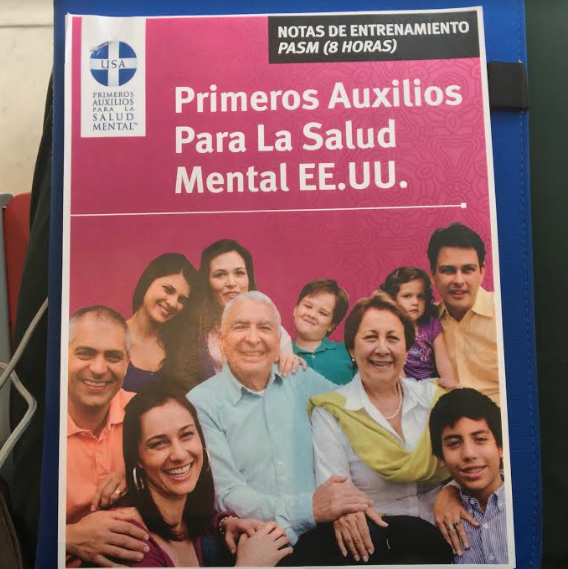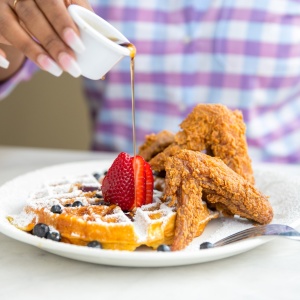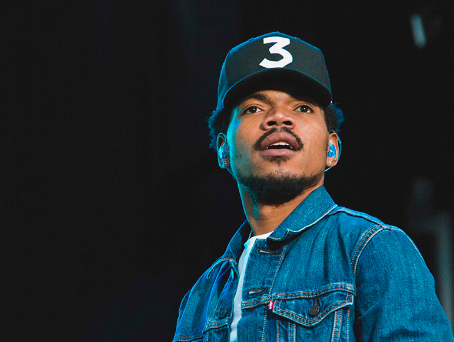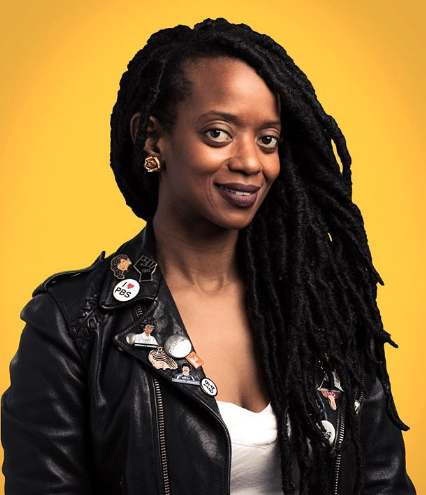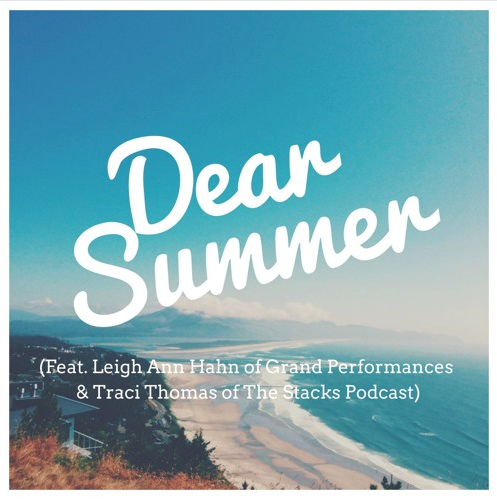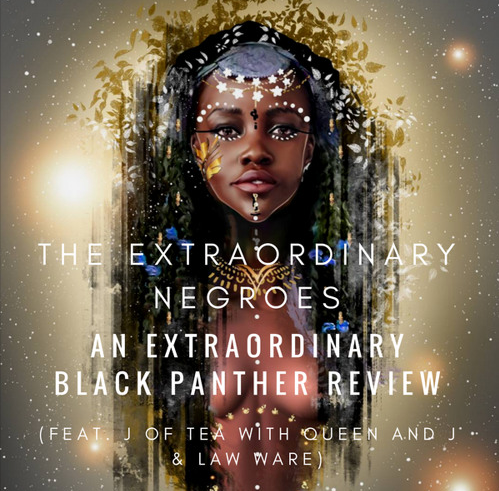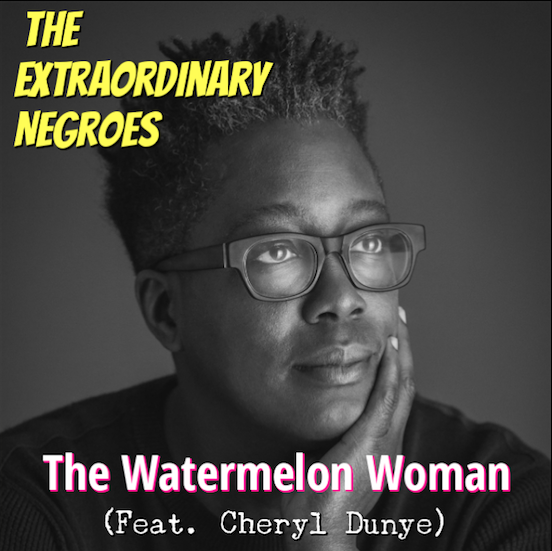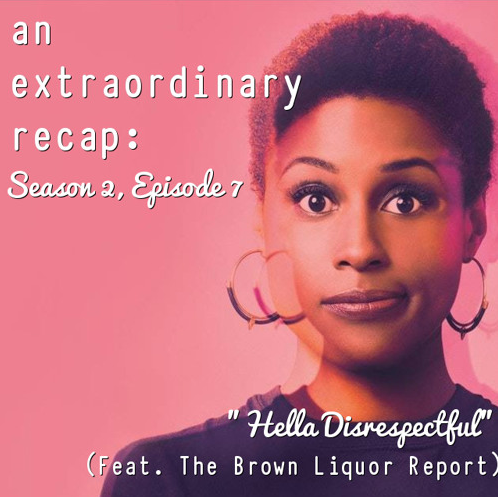Mental Health Monday #19: Depressed veterans, barbers as therapists, Black boys and feelings, etc.

Hip-hop mogul Chris Lighty (NPR)
Greetings, Earthling. Welcome to another round of Mental Health Monday, your weekly dose of stories, resources, and motivation for your everyday life. We made it here to another week in the Age of Alternative Facts. Clap it up for you. To make sure you stick around to help make this world less sucky, we've got some magic here for you.
On the last roundup, we shared some goodness about how the church failed a mother with mental health challenges, a guy who walked across the country to help with his depression, and a beginner's guide to therapy by Buzzfeed's Heben Nigatu. Have a gander.
THIS WEEK'S GOODNESS:
"Hip-Hop, Mental Health and Telling Our Stories: Combat Jack Talks the Life and Death of Chris Lighty" by Shanita Hubbard [The Root]
Mogul is fair and authentic. It unpacks some uncomfortable truths. It dives into mental-health issues that are specific to black and brown people, and the pressures of fame; and it takes the listener on a journey of what it feels like to truly see our heroes as their complex, beautiful, flawed and powerful selves.
Nikki Lynette shared some tips about handling depression, anxiety, and the like when stuff gets really real.
"Breaking the mental health taboo: 'Please talk about it'" by Phillippa Goodrich [BBC]
After his collapse, which he says followed weeks of not sleeping and drinking too much, Brian was admitted to a clinic for two months. There it became clear that he had suffered from depression since his teens.
Brian says the culture and environment in which he was working at the time wasn't conducive to helping him to recognise his illness, but he thinks the failure to acknowledge it goes deeper than that.
"Society, the world in which I was operating, the country in which I was operating - it was taboo."
"Encouragement from others to live well again" by Jennet [Make the Connection]
Jennet's father died while she was in Iraq, which made transitioning back even more challenging. She returned to her unit, and her chain of command saw a difference in her. With their encouragement, she began counseling and later found support at VA. Treatment helped Jennet overcome depression and begin living well again.
"Rocked by suicides, Palo Alto high schools want to make mental health care as normal as eating breakfast" by Grace Hwang Lynch [PRI]
In this Silicon Valley town that has experienced too many teen suicides, the schools are trying to make mental health services as normal as eating breakfast or taking medicine for a physical ailment. At the wellness centers, students can visit a nurse, see a counselor, or just relax with a granola bar or cup of tea.
“I actually come in here quite often, whether it’s to meet with Julia or to catch up with friends or counselors. The snacks are a big part of it, and it’s just a really nice place during brunch or lunch to unwind,” says Palo Alto High junior Maddie Lee.
"Barbershops as confessionals, newsrooms and therapists" [The Economist]
Keith Dube, a radio presenter, has argued that there is a “mental health crisis ongoing in black, British communities” (it formed the subject of his documentary “Being Black, Going Crazy?”). Mr Dube struggled with depression but found it difficult to talk about because “black people don’t really do mental illness”. When he started looking into it he found that black men were 17 times more likely than their white counterparts to be diagnosed with a serious mental health issue and that young black men were six times more likely to be sectioned. A distrust of the authorities, as well as a fear of the reaction of peers and parents, leads many to the barbershop chair as the safest space to talk.
YouthBuild Philly recently held a conference on men's mental health and here's a clip of it:
@YouthbuildPhilly Men's Conference - Mental Health https://t.co/49vteX3LSw
— Mu Law (@Mu_Law) June 23, 2017
"Giving Voice to the Feelings of Black Boys" by Amber A. Hewitt Ph.D. [Psychology Today]
In the case of Black boys, the intersection of their race and gender may serve as an additional barrier for emotional expression. Majors and Bilson (1992) theorize that one way Black boys and men cope with experiences of oppression is by adopting an exaggerated form of masculinity, or cool pose. Cool pose is often manifested by a tough posture, or mannerisms, to show others that you are in control, despite daily slights of injustice.

We're officially a Bitch-approved podcast.

Bitch Media, "a nonprofit, independent, feminist media organization dedicated to providing and encouraging an engaged, thoughtful feminist response to mainstream media and popular culture," named us among their "21 Bitch-Approved Feminist Podcasts." Collard greens for everyone.
Here's what they had to say:
"Mental health, Black pop culture, fatherhood, and masculinity are four of The Extraordinary Negroes’s core themes, and few podcasts tackle these topics as beautifully as Alexander Hardy and Jay Connor do. Black men podcasters are few and far between, but they shouldn’t be. The podcast is hilarious, but also delves deep when needed."

Shit yeah.
Get some more of "The Extraordinary Negroes" on SoundCloud, iTunes, TuneIn, or you platform of choice.
Also on the list are dope shows like The Read, Black Widow, Another Round, Black Girl Nerds, and so forth. Check out the full list here. We were also featured in The New York Times this week.
Mental Health Monday #18: The church's affect on mental health, walking to cure depression, Therapy 101, etc.

Greetings, Earthling. Welcome to another round of Mental Health Monday, your weekly dose of stories, resources, and motivation for your everyday life. Ready for another week of not being Janet Jackson while having several other somewhat redeeming qualities? Great.
On the last roundup, we shared stories about a mental health app helping young Black folks connect to mental health care and support, navigating romance while navigating mental illness, how one pastor is going beyond prayer to address mental and emotional challenges, and much more. Have a gander.
THIS WEEK'S GOODNESS
As part of Men's Mental Health Month, head to Twitter on June 27 at 6PM (ET)/3PM (PT) for #YouGoodMan: Justice and the Mental Health of Black Men and Boys: more info here
"How The Church Failed My Mother’s Mental Health" by Terrance Thomas [HuffPo]
I don’t remember when I first noticed my mother’s depression. Nor can I point to the exact moment(s) in her life that triggered her illness. But I’m certain that poverty, motherhood, workplace stress, and deep-seated childhood traumas were contributing factors. In her most vulnerable moments, my mother found solace in her Bible.
"TWiBPrime #946: Depression, James Comey, and McCain" by Elon James & Dara M. Wilson
"Struggle of Mental Health in the Black Community" by Sherri Williams, Ph.D. [Self]
Depression has been a constant part of my life since then. A lot of people don’t know that. Like most black people it’s not something I talk about openly with everyone. I’m already black, a woman, and overweight. Why add another stigmatized identity?
"After 40 Years of Staying Silent About My Depression, Last Week I Told the Whole World" by Sherri Williams, Ph.D. [Self]
For years people told me they saw me as a strong black woman. I always hated being associated with the strong black woman archetype because it’s an unhealthy and unrealistic myth that forces black women to carry the world on our backs while crumbling inside and not being allowed to talk about it.
"A Beginner's Guide To Starting Therapy" by Heben Nigatu [Buzzfeed]
Most therapists will ask new patients a few questions that help them understand what the patient wants from therapy. Lindau says she asks patients what they would like to talk about, when the issue began, and how often they feel it affects them. "I want to know how they decided to call me, and that question usually elicits the description of their reasons for calling," she says. This is an important time for potential therapists to learn about you, but the reverse is true too.
Are you a Black mental health professional? Do you know one? Alex is building a hub for Black wellness. Learn how you can be down.
The Extraordinary Negroes was featured in the New York Times!

Oh happy day. Yesterday we woke up to discover that The Extraordinary Negroes was included in a list of podcasts on race and culture in The New York Times' Race/Related newsletter. We're in great company and were listed among a bunch of other dope podcasts you should listen to.

Check out the full newsletter here. View the rest of our media appearances and press here.
Get some more of "The Extraordinary Negroes" on SoundCloud, iTunes, TuneIn, or you platform of choice.
Please stop requiring anti-racism and diversity trainings for POC in the workplace.
An Extraordinary Impact: Victoria Pannell is Standing Up Against Child-Sex Trafficking
Following in the footsteps of author Olivia A. Cole’s brilliant Women of Wednesday series, our own ongoing “An Extraordinary Impact” features people of color responsible for creating an extraordinary impact within their communities. By providing them with a platform to share their accomplishments, goals, and message, we hope to not only celebrate their achievements, but to galvanize support for their endeavors.

Victoria Pannell, Harlem
1. So what is it you’re doing and why are you so passionate about it?
I’m an advocate against human trafficking with a special emphasis on child sex trafficking. How do we have more slaves now, in the year 2017, than at any other time in history? I can’t go to bed in a safe and comfortable surrounding knowing little girls and boys are being kidnapped, sold, and raped over and over, day and night. How can we not be outraged when convicted traffickers get more time for selling drugs and weapons than children?
2. What made you decide to pursue doing this work?
At the age of 12, I filmed a public service announcement about a 13-year- old victim of human trafficking, then I went to Washington, DC to visit the girl I portrayed in the ad. She already had a baby. This was a child trafficked and raped as many as 10 times per day and impregnated before even becoming a teenager. I decided the day I met her that I would spend my life fighting human trafficking.
3. Who have been some of your biggest influences and inspirations?
When it comes to fighting human trafficking, it is Vincent Lyn, a rescuer of trafficked children. I’m inspired by our former first lady Michelle Obama and influenced in my activism by Linda Sarsour. Mrs. Sarsour is passionate in the causes she advocates for despite the brutal attacks she faces daily.
4. What would it take for you to consider this endeavor a success?
Although awareness about trafficking has increased, so has the number of human traffickers selling our children. I know I have been successful in my fight against trafficking when legislation is passed where traffickers receive life sentencing upon conviction and lose all present and future assets.
My mother and I prepared five bills and presented them to the office of Congressman Adriano Espaillat. If any of those bills pass into legislation then I will feel a sense of accomplishment and success. But right now, I don’t feel anything but frustration mixed with the determination to at least keep trying to put a huge dent in child sex trafficking.
5. How can interested parties support what you’re doing?
Stay on their politicians to support tough laws against traffickers. If you suspect a child is being trafficked, report it right away. If you know someone who is selling or buying children, then report it. In the next five years, I want to build a home for survivors of trafficking. When I start collecting funds to make that dream a reality….donate!!
To keep up with Victoria’s fight against child-sex trafficking, follow her on Twitter at @VictoriaPannell.
Are you making “An Extraordinary Impact” on your community and want to be featured in a future installment? Shoot us an email with your answers to the above questions to theextraordinarynegroes@gmail.com.
Mental Health Monday #17: Dating with mental illness, saving lives with action over prayer, mental wellness apps, etc.

Greetings, Earthling. Welcome to another round of Mental Health Monday, your weekly dose of stories, resources, and motivation for your everyday life. On the last roundup, we shared some goodness about singer Laura Mvula's journey with anxiety, a documentary on the mental health of college students by a Howard University student, a psychologist who prescribes books over pills, and much more. Have a gander.
If you missed #GetSomeJoy: A Blackstravaganza for Mental Health Awareness, here's a recap of what had happened that night.
THIS WEEK'S GOODNESS:
I’m A Pastor Who Refuses To Pray Black Trauma Away
As faith leaders, we can set a powerful example by preaching from our own experience. I have spoken openly about my battles with depression, and how I turned not only to my faith but to mental health professionals for help. Telling my story to congregants, colleagues, and friends has helped others feel comfortable doing the same, and helped them have the courage to seek treatment.
"America Keeps Criminalizing Autistic Children" by David M. Perry [Pacific Standard]
Why would a school cop in Florida throw a slender, autistic fourth-grade student to the ground? You might assume that the child must have presented some kind of serious threat to himself or others, that other skilled experts had already tried de-escalating interventions, and that there was no other choice. Such was not the case for 10-year-old Seraph Jones. This spring, a school cop threw him down and held him against the ground with sufficient force to cause rug burn.
It turns out that Seraph's worst day at school—so far—happened because he was clicking a key too loudly, then ended up trapped in a situation where he had no good way to safely calm down.
"Just Give It 7 Seconds" by Leah Beckman [Jezebel]
Do not, under any circumstances, think about any interaction you’ve had with another human being for longer than seven seconds. So you got weird at your office Christmas party. Give it a full seven seconds, and release it.
"Broken Dreams And Financial Illusions: The Secret Depression Of Black Men" by Dr. Marcus Bright [HuffPo]
There is a secret depression that is rooted in economics that many Black men battle. It is hidden underneath an assortment of layers including an exaggerated bravado, drug and alcohol abuse, misdirected anger, and other forms of destructive behavior. Fantastical illusions are also a tool that is deployed to cope with the humbling realities of an often marginalized existence.
The “Bow Wow Challenge” that took over social media earlier in the month was a reflection of a daily pattern of illusions for many. Some aspect of Bow Wow fronting like he was traveling on a private plane instead of his actual reality of flying coach on a commercial airline is frequently in operation for Black people in this country.
"This New App Could Revolutionise Mental Health Care In The Black Community" CherryCasey [Buzzfeed]
Sait has launched Recovr – an app that helps young black adults (ages 18-35) with mental health problems seek professional treatment from black therapists and counsellors. The service also offers subsidised treatment to eligible users, depending upon their income and the severity of their mental health concerns.
Rapper Waka Flocka Flame sat down with Dr. Siri Sat Nam Singh to talk about his life, his struggles, losing his brothers and friendships, and self-medicating with weed and pills.
"Jail Creates Mental Health Woes for Black Men" [Black Health Matters]
Researchers from the University of Michigan, Rutgers University and Texas A&M found an association between African-American men with a history of incarceration and adverse mental health issues. For the purposes of the study, published in the Journal of Racial and Ethnic Health Disparities, those issues were defined as psychological distress and depressive symptoms.
Compared to other African-American men, those who have been imprisoned have 14 percent, 13 percent and 16 percent higher severity of depression, distress and discrimination, respectively.
"The Secret to My Success? Antidepressants" by Juliana Fierro
A few months ago, I gave a reading at a local bookstore. A small but enthusiastic crowd attended, and I confessed to the audience filled with emerging writers that I had, in my 20s and early 30s, stopped writing for eight years, and that I had accepted I’d never write again. Then someone asked, “How did you return to writing?”
I decided to tell the truth: Zoloft.
"I Got Something To Tell You...Coming Out To Bae About Mental Illness" by Tia Brown [Cassius Life]
So when do you come out of the closet?
The answer won’t be the same for every situation but a good indicator is when you’re starting to feel like your history is a secret you work at hiding. The reality is you may never be “ready” to share, but this isn’t just about you. The time to disclose should be determined by the level of emotional and physical intimacy your are developing with the other individual.
"If You Have An Anxiety Attack And No One Is Around To Hear It, You Still Make A Sound" by Erica B [HuffPo]
Almost every moment that I’ve disclosed my disorder to anyone, with the exception of my parents, close friends, and my therapist, has felt like this one. I have been made to feel as if I’m imagining my panic attacks, by people I once held near. I’ve been told that I need more church, more sleep, more things to “do.”
My anxiety makes me feel noiseless to others like I don’t rattle or shake for reason or no reason at all. It makes me feel invisible, as folks point their fingers and strikethrough my words.
Are you a Black mental health professional? Do you know one? Alex is building a hub for Black wellness. Learn how you can be down.



